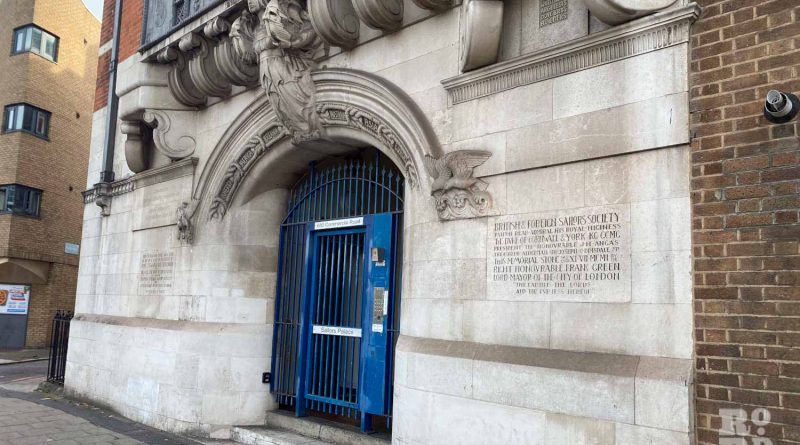Hidden in plain sight: Limehouse’s Chinese Association of Tower Hamlets
Originally set up to support immigrants from former British colony Hong Kong, the Chinese Association of Tower Hamlets is keeping the Chinese culture and language alive for a new generation.
Set up in 1983 to help new Chinese immigrants to the East end overcome the many language and cultural barriers they faced, the Chinese Association of Tower Hamlets has been a key part of the community for decades.
In the 1970s and 80s, there were new waves of immigration from Hong Kong to the East End of London.
Some of the Chinese leaving Hong Kong were sceptical about the future handover of Hong Kong, which at the time was still a British colony, to mainland China.
However, according to Alan Chau, the current General Manager of the Chinese Association of Tower Hamlets, for most it was part of ongoing migration away from Hong Kong in search of new opportunities.
He said: ‘The younger generation often left to go overseas, seeking opportunities to learn English and broaden their horizons. The strong tie with Britain because of colonisation meant many came here.’
These new immigrants faced many challenges and problems. They didn’t know the language. The culture was different. After leaving humid and hot Hong Kong, even the British weather was hard to grow accustomed to.
Alan, who immigrated to the UK in the 1980s to study, reflected on some of the challenges he faced.
‘The experience was daunting, I was homesick for a whole year. My English was so poor I couldn’t communicate with my fellow classmates.’
With little support from the local authorities, new immigrants turned to each other for support.
‘Chinese people like helping each other.’ Says Alan, ‘It’s one of our habits, we don’t like relying on people to help us. We work hard and study hard. When there’s a problem we just deal with it.’
So the Chinese Association of Tower Hamlets was founded in 1983 by a group of dedicated university and school students. Volunteering part-time out of a small donated space in Tower Hamlets, they worked to advocate for and support new immigrants. Especially helping to bridge the language barrier.
Two years later they started to get support from the local council and moved to Sailors Palace, along the A13 in Limehouse. The space they have occupied until today.
There is virtually nothing left to show that the Poplar and Limehouse were once London’s first Chinatown. Originating with Chinese Sailors settling near docks in the area, it soon grew into a thriving community. This lasted until the 1960s when Chinatown shifted to its current location near Soho.
However, Tower Hamlets still has the third-largest Chinese population in England and Wales after the City of London and Cambridge. In the 2021 census 10,279 Chinese people lived here, 3.3% of our borough’s population. Looking closely at Sailors Palace you will see the Chinese characters in the window, marking it as the home of the Chinese Association.
Much has changed in the 40 years since it was founded. Language barriers are no longer the biggest issue for the Chinese community, quite the opposite. The association’s Chinese Independent School of Tower Hamlets provides a space for the new generations of young Chinese to learn Cantonese or Mandarin and stay in touch with their language.
Now decades since many first immigrated, more elderly Chinese require care, support, and opportunities to socialize and stay active. The Home Care service offered by the Chinese Association provides trained and bilingual healthcare workers primarily to elderly Chinese people.
On Tuesdays Sailors Palace is open with a series of classes and activities including calligraphy, Chinese medicine, line dancing, and ping pong.
When asking about the biggest challenge they face now, Alan is very clear: ‘financing.’
Over much of its existence, the Chinese Association has relied on funding from the local council and grants. However, currently, they operate without financial support from Tower Hamlets Council and rely heavily on self-funding for their main two projects, the Chinese School and Home Care Project.
The Community Lunch program for elderly Chinese people had to stop running in March this year because of a lack of funding, after continuing consistently since 1985. For Alan, ‘That was a big loss.’
Despite this, he does not doubt the future of the Chinese Association of Tower Hamlets. He says ‘Our goal for the future is to sustain our projects and grow them.’
‘Nothing is easy, but we will find a way. Even in the 1980s, everything was difficult. So long as you have the will and the drive and you don’t give up, you have hope. And if you have hope, you don’t worry too much, you’ll just carry on.’
As for what keeps him going, Alan is very positive.
‘All these years, there are ups and downs, there are difficulties, but the reason I keep on doing it is because when I come into this centre and see elderly people doing something meaningful and healthy with a big smile on their face, and then leaving with a big smile on their face, that means everything.’


